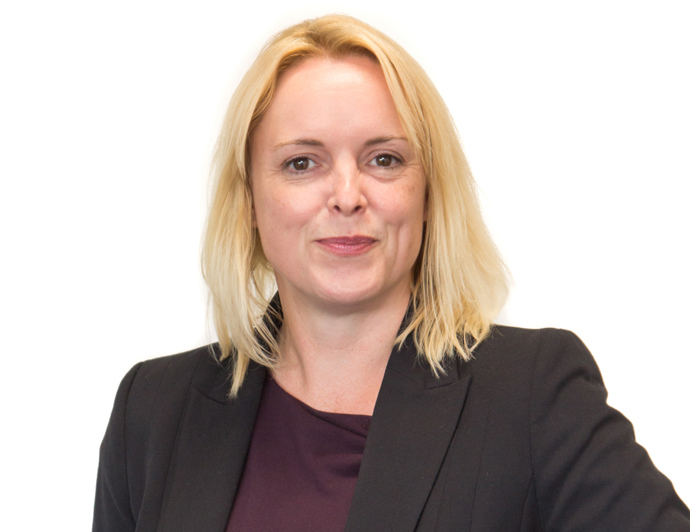Sarah Kenny OBE, Chief Executive of international scientific and engineering services and maritime consulting firm BMT, talks to Paul Butterworth, Partner and Head of the Maritime & Shipping Practice, about lessons learned during the pandemic, achieving decarbonisation in the UK by 2050, and encouraging women to pursue careers in STEM.
Paul Butterworth: Sarah, you last spoke to us at our annual Maritime & Shipping Practice reception in June 2019. To say that the world has changed massively since then would be a huge understatement! What has been the most challenging part of managing a business during the pandemic?
Sarah Kenny: Managing uncertainty and having to make decisions with limited data has always been part of running a business. COVID-19 has intensified that and brought the horizon much closer meaning there are many more variables and unknowns to accommodate in planning.
The pandemic’s impact on our customers has varied considerably by sector and location so the picture is complex and in constant flux. It has been a valuable reminder of the importance of agility and flexibility in responding to the ever-changing challenges our customers face.
In addition, the uncertainty we have all had to endure as COVID restrictions have changed and evolved has increased stress and anxiety for many people, particularly when the majority are working remotely.

PB: What new ways of working has BMT implemented during the pandemic?
SK: From a technology perspective, BMT was already well set up for remote and flexible working pre-COVID. As a result, our employees were able to work effectively from home almost immediately. In fact, we were so effective that in some instances we were able to share our resources with customers who were struggling with their own remote working technology.
In 2020, we encouraged and enabled much more flexible working, recognising that individuals’ circumstances vary widely and change over time as people balance caring commitments, family life, health, exercise and many other things alongside their work.
The lessons learned through this experience will stay with us and we will be offering our employees more flexible working arrangements post-COVID.
Our experiences through the past year of virtual teaming and digital delivery will also help us achieve our growth strategy in 2021 by ensuring that our customers can seamlessly access our full range of capabilities, wherever they are in the world.
PB: Congratulations on stepping up to serve as Chair of Maritime UK, the overarching body for the maritime sector, on 1st January. Maritime UK has expressed its support for decarbonisation by 2050. What needs to be done to achieve this goal?
SK: A mix of offshore, coastal and inland decarbonisation technologies and green infrastructure will be required for renewable energy generation, portside infrastructure and for the deployment of more sustainable fuels of the future such as hydrogen and ammonia. In the UK we have the right technology and a skilled workforce to deliver that decarbonisation agenda in the maritime industry, providing there are the infrastructure investments, regulatory frameworks and collaboration across sectors to accelerate and implement the best technology.
BMT is leading and innovating in this regard from efficient hull forms and low carbon vessel design to building the collaborations that can deliver projects and bring about real change.
From a maritime perspective and from a UK-wide perspective I believe the 2050 goal is achievable if we all truly have the will to make it happen.
PB: As a champion of diversity, do you think there is an ideal age to start fostering an interest in STEM subjects in young women?
SK: It is never too young to start!
As a society we reinforce stereotypes from the earliest age that lead to boys being more likely than girls to play with STEM toys and then perpetuate that. In order for a girl to pursue education and then a career in STEM, stereotypes must be broken.
On a personal level, I have been very fortunate to have had some fantastic role models and mentors, and I am hugely appreciative of the time that people have committed towards my development. I try my best to repay that by mentoring and coaching others, especially those at the start of their careers. Early in my career I had the privilege of working for an excellent female boss. She was truly inspiring and a superb role model. I didn’t realise until many years later just how positive an impact she’d had on me.
PB: What barriers remain to equalizing the gender imbalance in STEM career leadership positions?
SK: There are barriers at the institutional level that every organisation should be working to understand and address. And barriers at the societal level which require our collective will and endeavours to change. For example, women still shoulder more of the burden of domestic labour even if they and their partner are both working full time. Recognising that reality, our employee value proposition has to include opportunities for flexible working so a huge talent pool is not excluded from the workforce.
We still see a gender imbalance in the pipeline of talent flowing out of universities in STEM subjects. We collaborate with many universities, but we have also put in place the framework to encourage women into careers—not just jobs—with BMT.
We have a long-running development programme called “Consulting Women” that provides targeted professional development for our female employees. This helps feed our internal pipeline of talent for succession planning.
PB: Speaking of promoting women in STEM, you were awarded an OBE in 2019. How did that feel?
SK: I’ve heard many others say what a tremendous surprise it was when they discovered they’d been appointed honours, and perhaps cynically I’d often thought they must have known about it in advance. However, my appointment really was a genuine surprise! I am deeply humbled and grateful to those who took the time and made the effort to nominate me and I feel immensely proud to have been recognised in this way.
Thank you, Sarah, for your time; as always, it is a great pleasure to catch up. One fact which most people won’t know about you, if I can share it, is that you are an expert on sewage treatment plants in nuclear submarines!



